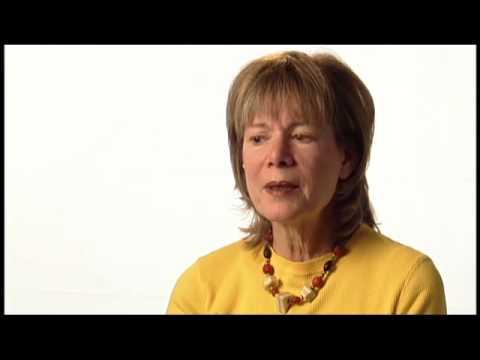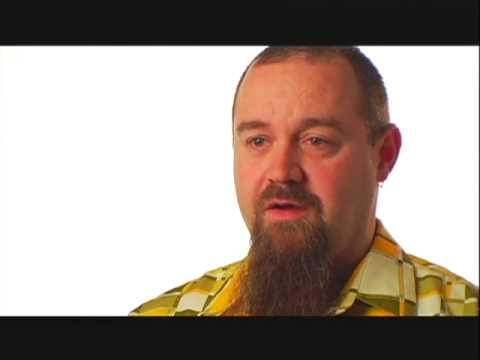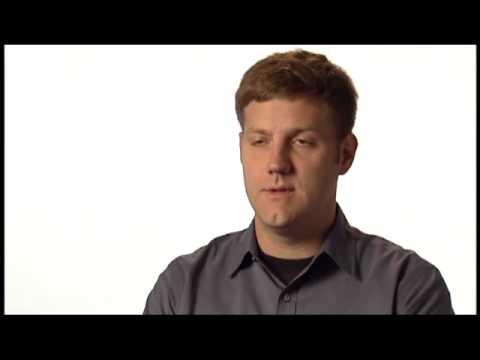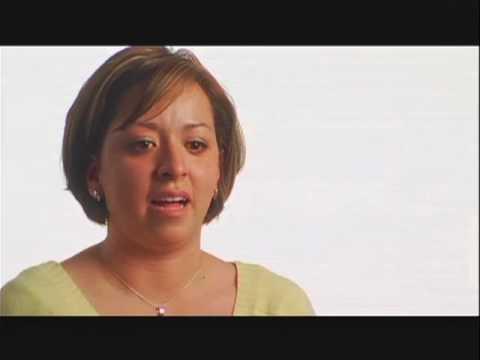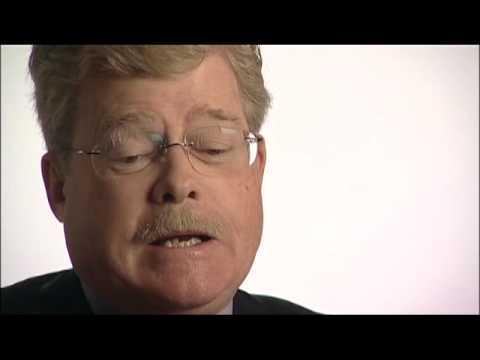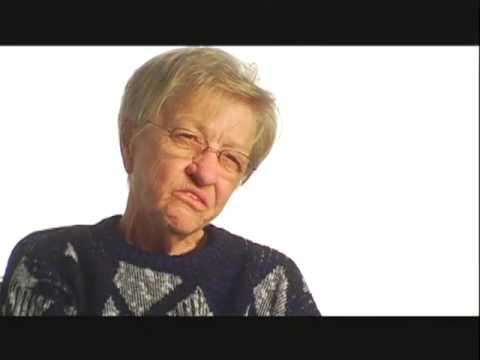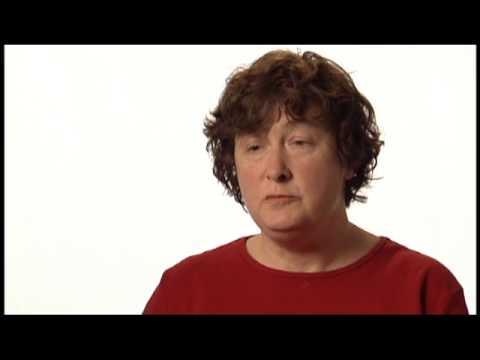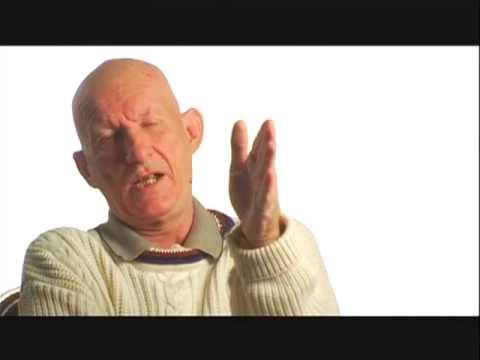Raymond and Tribune H.
Tribune: I was combing Meagan’s hair. I noticed she had a bump on her head. And it didn’t really bother me that much, but the next day I combed her hair again and noticed the bump looked like it was a little bigger. And decided to take her to the doctor. The doctor thought maybe some surface infection and gave me some cream for it. It got a little bigger and looked worse. I had another doctor look at it to get her opinion, and she wasn’t sure, so they decided to do what they call the punch biopsy. They did that, and the results came back that it was a malignancy. We went further into testing. She was diagnosed with infant acute lymphocytic leukemia with a lymphoma component.
Raymond: There were a few physical changes, starting with her hair falling out. That was the first thing that she noticed. So I went home and I shaved all of mine off. And when I went back, I said, “Well, Daddy’s bald now. So it’s okay. We’ll both be bald.” And her hair grew back. I said, “Well, I’ll grow mine back.” She said, “No, we like you baldheaded.”
Tribune: The eating issue was a two-year ordeal for us. Her tastes buds totally changed. We knew that could possibly happen, but I didn’t know that it would last for two years. She had an aversion to food. Everything she ate, she gagged and did not want. She was on Hyperal and lipids through her central line for several months. You can only be on that for a certain period of time before it starts affecting your kidney and your livers. So after that, she went to NG feedings, nasal gastric feedings. We would do those at nighttime. That lasted probably about a year. Then she had a G-tube for almost a year. And then one day out of the blue, she started eating.
Raymond: After she started to eat, then we found out that she had a malabsorption problem. She wasn’t absorbing the food that she was eating. Because of the radiation and chemotherapy, part of her intestines was fused together, so the food couldn’t pass through. She had to have another operation to fix that. Meagan’s had about six surgeries. All these were things that came from having chemotherapy and radiation and that type of thing. She seems to pretty much be a normal thriving little girl. Tinier stature, but real tough.
Tribune: She has a short stature for a 10-year-old. Most people think she’s about six years old. Even though Meagan is tiny, she’s a fireball. You need to see her play basketball. That girl is awesome. She played two years in a row, and then couldn’t play the third year because she had surgery on her leg. She can’t wait for the season to start again this year, so she can get back out there.
They told us she would have some cognitive delays. She had total body irradiation when she was 13 months old. When it came about, I was not surprised by it, but I knew that it was something that we had to start dealing with. We had her tested. They found out that she did have some delays, and they attribute it to the radiation at such a young age.
At her public school she qualified what they call an IEP, which is an Individual Education Plan, where she had certain goals that she had to meet. But hers were made specifically for her where she was at that time. She’s now in a program at her school, where she’s in a smaller classroom, which works out very well. She only has twelve students in her class. It falls under the Special Education Program for children with learning disabilities. With 20-something students in that class, the teacher can’t focus that well on this one student that might be struggling. And so having a smaller class has really made a difference. It’s really built up her confidence, and she’s doing very well now.
Raymond: Working with her, I find that once she gets a grasp on something, then she’s got it. And it’s just the point of taking the time to make sure that she really gets a grasp on something. It’s a lot different from her twin sister, but taking the time, making sure she gets it seems to be really helpful for her.
Tribune: Meagan also has problems with her teeth. Because of the radiation, she did not develop the buds in her gums for her permanent teeth. So she’s going to need dental implants eventually, but they can’t do that until she’s at least a teenager. The insurance company says, “Oh, we don’t cover dental implants.” But then on the other hand, there is a statement in your contract says that dentistry is covered if it is a result of the treatment that a patient has had. So it’s hard to know what’s covered and what isn’t.
Raymond: Insurance at a lot of times was an issue. We had to write. We had to constantly stay on top of things I remember at one point insurance told us that they would not cover the second bone marrow transplant. But through the persistence they decided that they would pay for the second bone marrow transplant.
Tribune: It was a lot of phone calls. There was a lot of writing and trying to get connected to this person and that person. It can get frustrating. But you have to be persistent.
Raymond: When Tribune was pregnant and we were doing the ultrasound and the nurse said, “Ah!” and I said, “What’s wrong? Is it a little boy? Is it’s thing sticking up?” Because I wanted a boy real bad. And she said, “No.” I said, “Well, what is it?” She said, “It’s two.” I said, “Two?” I said, “Oh, my goodness,” because my mother had five sets of twins. So I was thinking, this is starting all over with me. My wife grabbed my hand and told me, “Don’t worry, Raymond. God gave us two babies for a reason.”
When they were testing them to see if Rachel was compatible to give Meagan bone marrow, the doctor said, “You guys are so lucky. They are a perfect, identical match.” I said, “No, we’re not lucky.” I said, “That was a match made in heaven.”
Tribune: I don’t think faith is something that you just have when everything is going good in your life. If you believe in God, I feel that you need to trust him through the good, the bad, the ugly. Your faith needs to be unwavering. If you trust God, I feel you trust the decision. I don’t think that He would make me just go through something that’s not gonna be for the good of us.
Raymond: I remember our oldest daughter, Alicia, had a hard time. We had talked to her counselor, and she said that there was one point that Alicia was extremely sad, because she thought her sister might die. But it was just a process of everybody talking with one another, seeing what was going on. You pray together, you work together, you believe that things are gonna be all right, and ultimately, they are.
My relationship with Tribune was shaky because she had worked in conventional medicine as a nurse for so long, and my belief was more or less in holistic medicine. I believed at the time that Meagan couldn’t take a year of chemotherapy. And by her working in the field at that time 18 years or so, we had a real struggle. But after coming to the conclusion that our faith in God was gonna heal her, then things began to come together. As a parent, we had to do everything we could do to give our daughter a chance to live. I remember asking a doctor about the chemotherapy, because after reading about it, everything had so many different side effects. I said, “Well, what if we do nothing?” He said, “She’ll surely die.” So then at that point, we knew that it was something that we had to do.
Tribune: We argued a lot during that beginning time. “I want this. I want that. I don’t want this. I don’t want that for her.” And it all came down to us praying about it one night. I just remember laying on the couch and crying and just telling God, “I just can’t deal with this anymore. If you want Meagan to have this chemotherapy, just give me a sign. I want a real sign. I don’t want something that I could possibly miss.” Just let me know that this is from you, you know. And my husband came in, and said to me, he said, “Tribune,” he said, “I’m gonna let Meagan have the chemotherapy, because I realize it’s not in our hands.” He said, “It’s not in our hands. So if she’s gonna survive, she’s going to.” And that was my sign.
Raymond: To me, survivorship means taking that from the past with you to influence the present, not bringing a negative connotation, but just knowing it’s there and being able to deal with whatever you have to deal with. To me, that’s a survivor.
Tribune: I want to let parents know that they’re not alone. There are resources out there. There are people. We met so many wonderful people through this whole process. Bcause of what you’ve gone through, you’ve made these bonds with them, and you’re so happy that you know them, even though you had to go through this to get to know them. There is somebody out there that understands what you’re going through. Don’t be afraid to step out and reach out for somebody’s hand, because people really do want to help.
Raymond: My name is Raymond Head.
Tribune: And my name is Tribune Head. And our daughter Meagan is an eight-year leukemia survivor.
